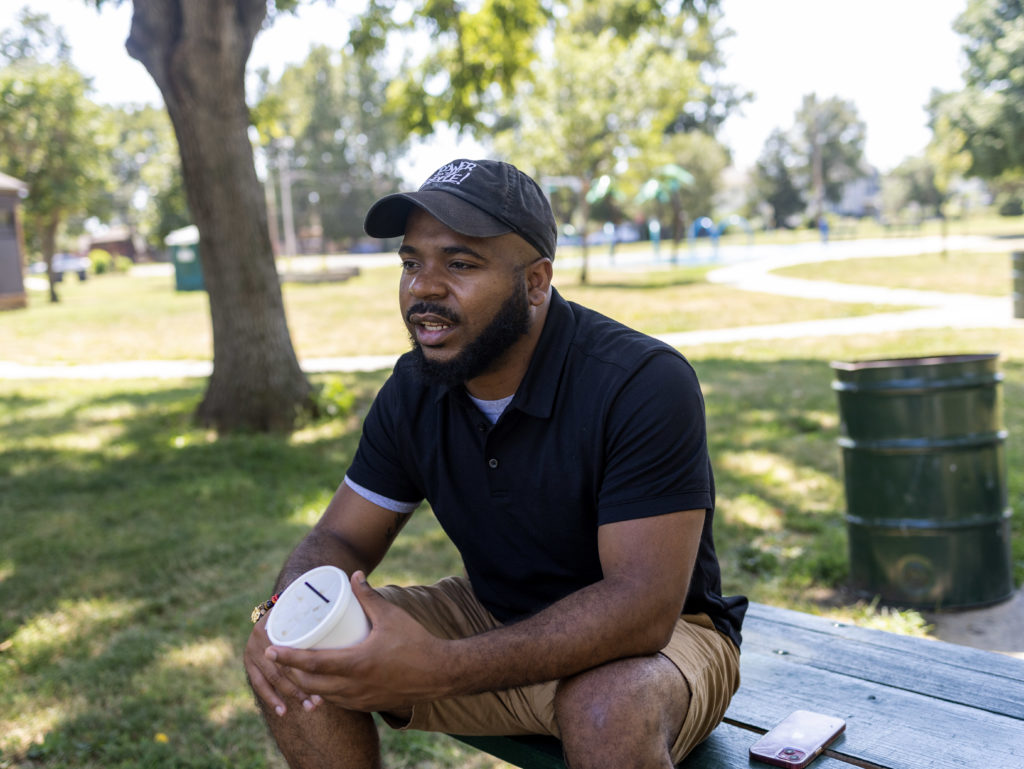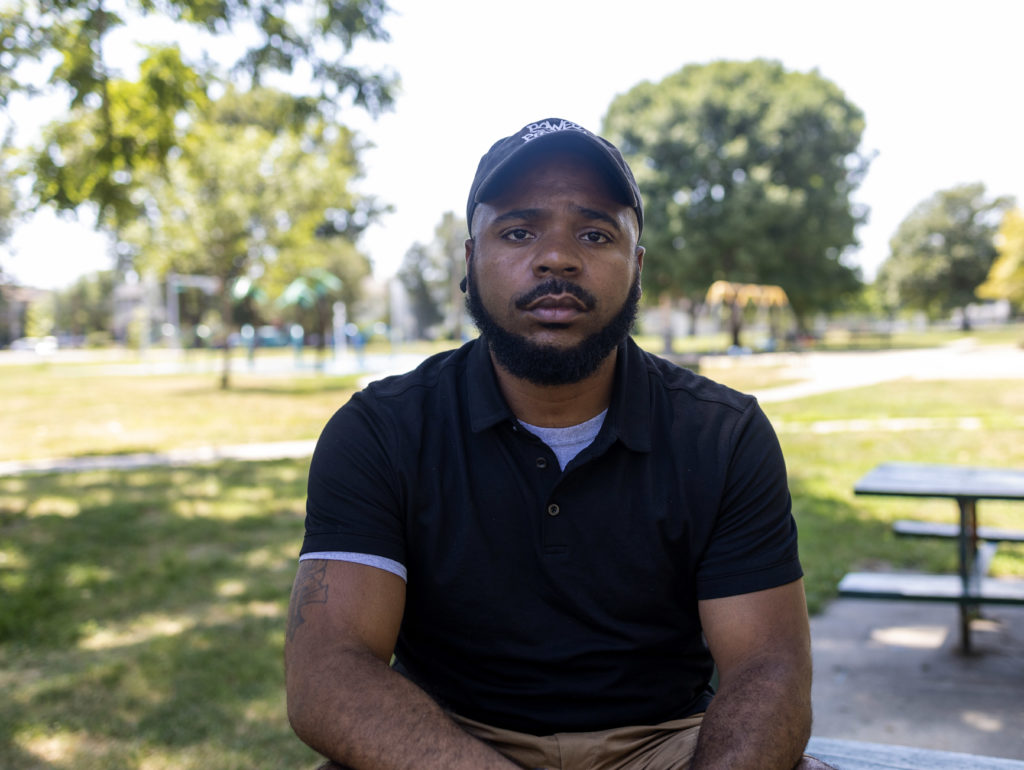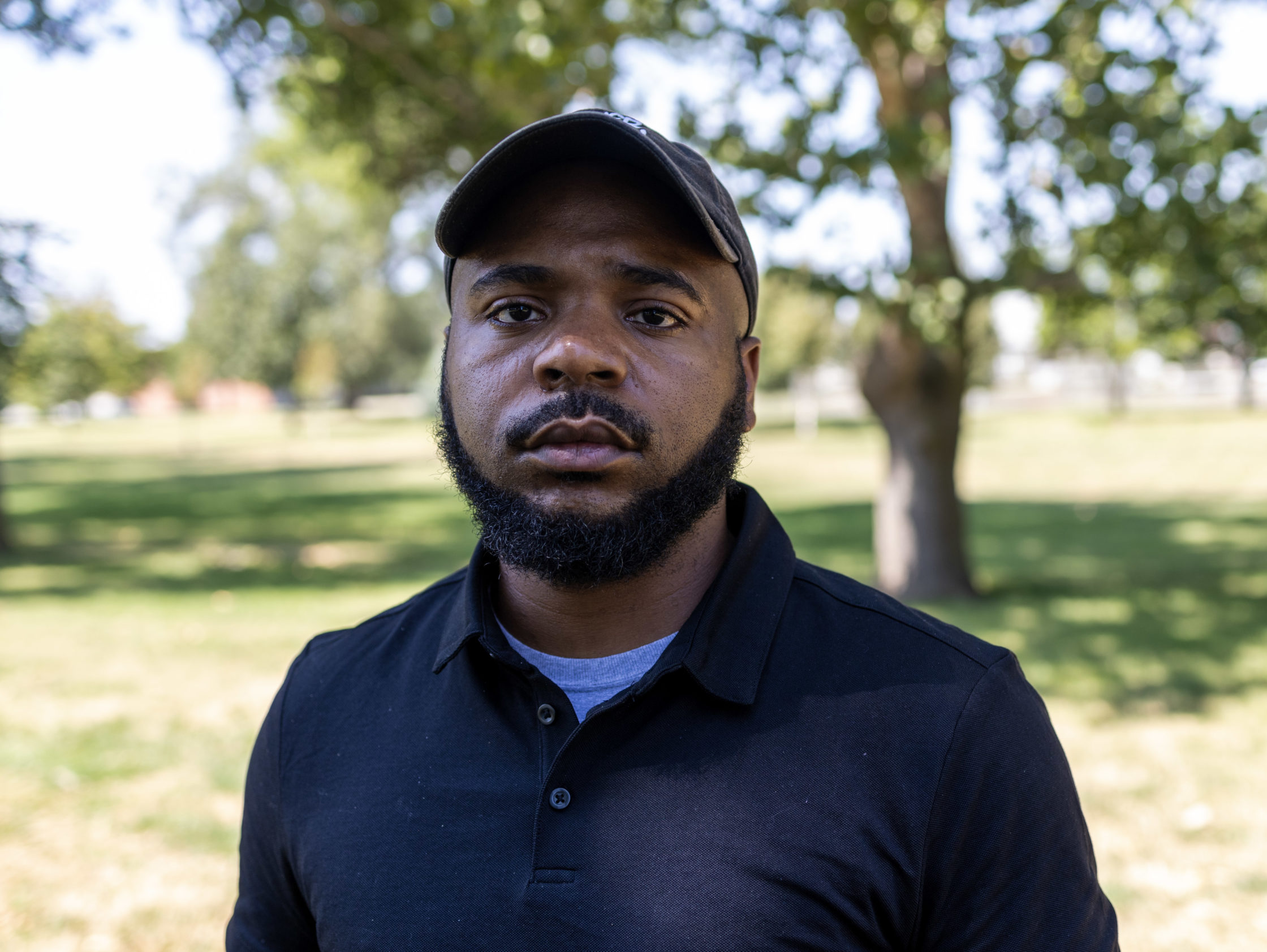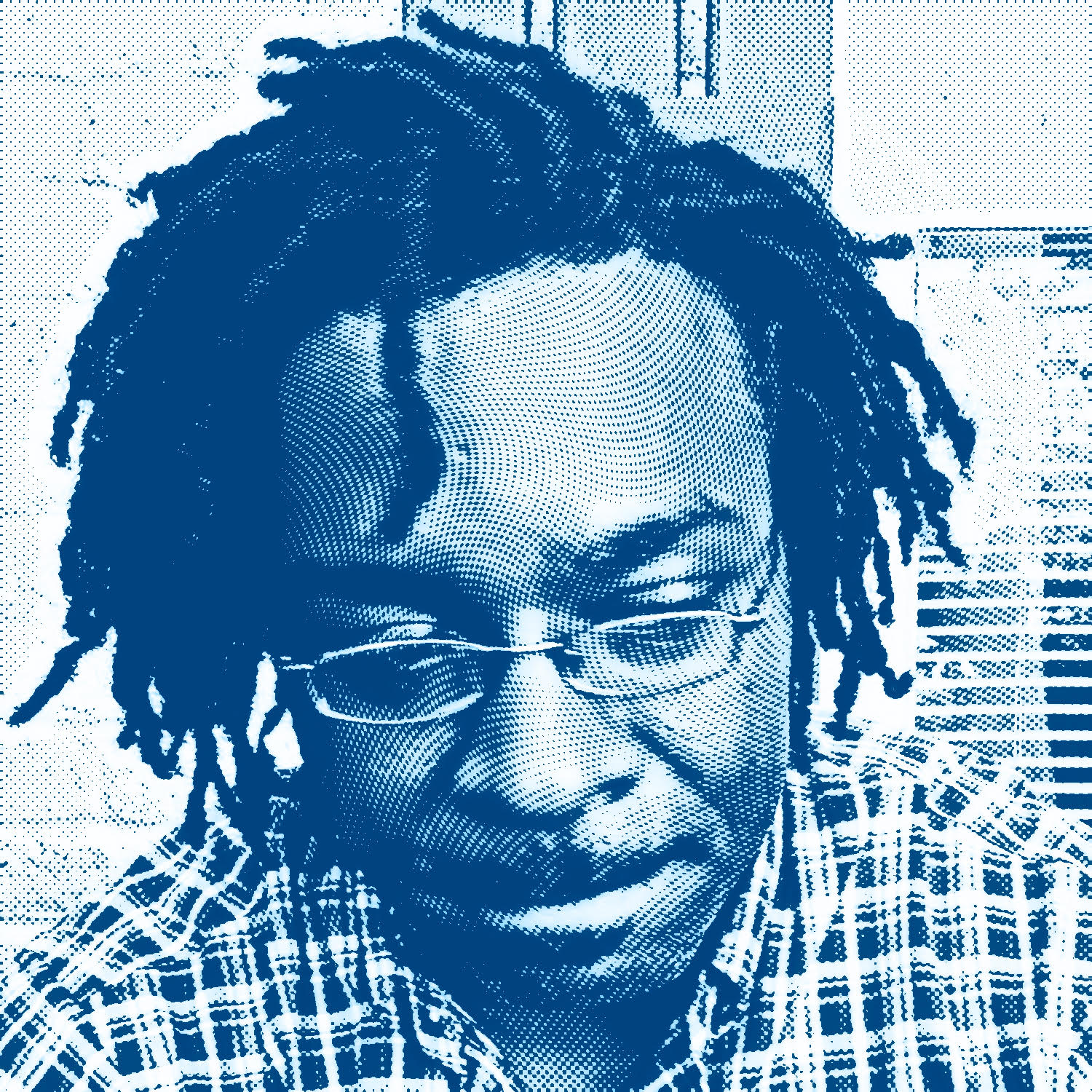On the west coast of Africa near the Gulf of Guinea, Nebraska State Sen. Terrell McKinney felt something that he says he rarely feels in the United States.
Serenity.
“Being there, it was like a weight was lifted,” he said from his seat at Culxr House, a community hub inside the North Omaha district he represents in the Nebraska Legislature. “Whatever sense of alertness I had here, I didn’t have there. I was able to just relax.”
The senator’s trip, spearheaded by Willie Hamilton, president of Black Men United, was intended to establish a sister city relationship between Omaha and Jameston, a township in Ghana’s capital city of Accra. The purpose: “Giving our kids an identity to understand where they came from,” McKinney said.
But an interesting thing happened as McKinney worked to establish this sister city relationship in Ghana. He felt himself better understanding his own identity, too.
There were tourist reasons to love Ghana: The lively Accra metro area known as ‘Africa’s Capital of Cool,’ nice weather, fine restaurants, a colorful bazaar and a lively nightlife scene. All of this drove the Ghanaian government to sponsor “The Year of Return” in 2019, trying to make Ghana a quintessential destination for Black people around the world.
But the Nebraska state senator also connected to the country’s history. He marveled, for example, at stories of the powerful Ashanti Empire fighting off the British under the leadership of women.
“You always hear about the warriors in Africa, but you rarely hear about the women,” he said. “The women stepped up in a major way.”
McKinney, who grew up poor in North Omaha, also felt a kinship with the Ghanaian people’s struggle. The inflation rate soared to around 30% during his visit. He saw poor people in the city displaying an entrepreneurial mindset and hustler’s mentality. It’s a hustle he feels that, for a host of reasons, is sometimes lacking in African American communities.
“How they address their issues is to get in the street. Let’s make some money in a legal way,” he said. “The people that are not in the best situation aren’t walking around with their heads dropped.”
The fact that the majority of African countries suffer chronically poor conditions, and that African American communities like North Omaha do, too, isn’t an accident in the state senator’s eyes.

“It’s crazy to me that our ancestors come from a natural resource-rich continent, but the people are the most impoverished in the world,” he said while comparing his hometown to Accra.
“Then you look here. Supposed to be in the greatest country in the world, but every Black neighborhood is impoverished and that’s viewed as a coincidence.”
This sense of unfair treatment towards the Black residents of North Omaha is a major reason McKinney says he was inspired to run for the District 11 seat long held by Ernie Chambers. A too-high poverty rate, health disparities and a disproportionate number of Black North Omahans locked up in the state prison system are issues that concern McKinney – issues that haven’t changed much since he was a child, he said.
The historic mistreatment by the state of Nebraska towards its Black residents is a big part of the underlying problem, McKinney believes.
“Part of me feels like Nebraska doesn’t want Black people to be here if I’m being honest,” he said.
“The barriers that you have to jump over, crawl through, and shake to get anywhere in Nebraska as a Black person is a reason you see so many young Black people just leave.”
McKinney desires to take what he dubs ‘the Black conversation’ to a global stage and have honest conversations about resolution for past misdeeds that affect millions of African Americans.
“When it comes to us — no matter who was at fault — no one has come close to a reconciliation piece in a real way. How can we put the struggle of the Black man, Black woman, and Black kids on center stage globally, and get people to pay attention to what happened to us historically? In a real way. Not an, ‘I’m sorry…move on the next day.’ A meaningful, ‘Y’all were wrong.’”

“You’re walking on it,” he said. “How can I move on from something that is still there?” Photo by Jazari Kual/Flatwater Free Press
McKinney isn’t solely talking about American and European slave traders and holders.
Ghana’s integral position in the transatlantic slave trade can’t be overstated, he said. The country, once a British colony known as the Gold Coast, was a major hub during that dark time in American history.
Slave castles built by European traders still stand as archaic educational centers and tourist attractions. McKinney visited several of them while in Ghana. He noticed that Ghanian locals hesitated and often seemed embarrassed when Americans asked them questions about the slave trade.
“It’s like, ‘You’re home, why are you asking about that?’” he said of Ghanian reaction to slavery questions. “But for us, we are still in search of who we are and our identity.”
McKinney went searching in Ghana. He entered the slave castles and, he says, saw the “dungeons and the feces, blood and spit” still evident on the walls and floors.
“You’re walking on it,” he said. “How can I move on from something that is still there?”
These same convictions fuel the state senator’s drive to improve the lives and livelihoods of his constituents. His goal: Bring economic equity and true opportunity to North Omaha.
During the last session, McKinney, Sen. Justin Wayne and others secured a whopping $336 million in pandemic recovery funds to benefit both North and South Omaha.
This money will eventually impact a wide range of areas, including multi-family and single-family housing and infrastructure. He hopes it will spur small business growth and create jobs, though the money’s impact won’t be felt immediately.
In the meantime, the state senator hopes actions like tearing down and redeveloping the Spencer housing project will have an impact. He hopes pledges to do better by Black Omahans and North Omaha residents – pledges signed by a number of Omaha-area corporate leaders after the murder of George Floyd – will help, too.
“To me, doing anything here you have to be intentional,” McKinney said, motioning towards the street outside Culxr House. “It’s easy to build a building, but it will have no economic impact on the community. We had a group of business people in Omaha sign a letter saying they’re going to do better. But what did they do to do better? How many of them are willing to sacrifice their seats at the table to uplift you?”



4 Comments
Thank you to Senator McKinney and Flatwater Free Press for this
frank and sorely needed statement on racism in Nebraska. It gives me
more hope and inspiration to carry on in our work for justice and real
community.
This conversation is much needed and Senator McKinney made great comparisons and points in this article. The conversation has so many facets and so much depth. I will add it is not just what has been done and what is being done, but also what are we doing to add to it. It starts with mindset and radical acceptance of things and time lost. We have not yet learned to grieve because we have had a hard time of letting go of what just does not exist or will never be turned over. I am not saying don’t acknowledge. I am simply saying how do we move forward in conversations and situations that we may have to go without. How do we not refrain from mirroring the unhelpful behaviors and attitudes that oppressed us. How do we mend and build bridges with all we have or have been given (depends on how you see the glass). Or do we? Do we build our own, take accountability for today, hold each other accountable to change, and challenge one another. Do we call out those who are not in alignment, or do we keep doing what we have been doing for years talking and meeting only to get centimeters away from the true answer (God to make it a simple answer) to just schedule another meeting to talk. Signing letters and making promises is not enough. We need people who are willing to stand up and stand out on these issues and stop using the excuse it takes time. Stop using the excuse you can not be radical. This country has proven radical is the only way you get heard and the only way things change. We need people who are willing to come from behind their desk collectively and risk their positions. Until then I feel as though we will continue to do what we can, and THAT will never be enough. Just my thoughts. Love the article.
How do we put FATHERS back in homes, both black & white??????
Thanks! This story is why I donate to Flatwater! I am glad such a thoughtful person has replaced Senator Chambers!